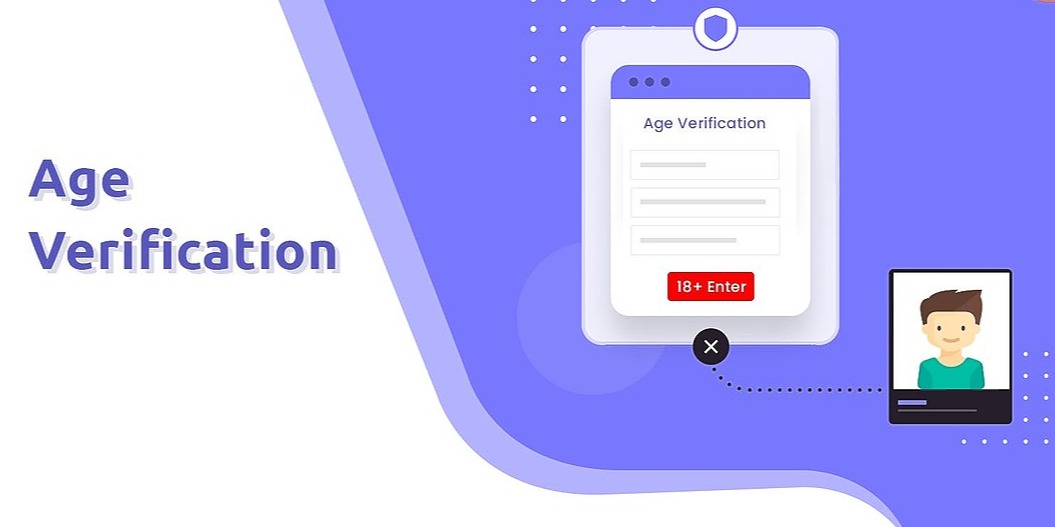
E-commerce Safeguards: Age Verification Best Practices
Shopping patterns have evolved because of the proliferation of online retailers. Going to a store is only sometimes necessary to make a purchase today. Online shoppers can find just about whatever they're looking for. However, there is a possible disadvantage to this convenience: children can acquire adult things when shopping online.
An identity verification system is required to guarantee that only legitimate adults are making purchases from Internet retailers. Websites desperately need to adopt this tactic.
Verifying a Person's Age
Verifying someone's age means comparing their stated age with official records. Many forms of identification, such as licenses, passports, and credit cards, are acceptable for this purpose. The age of a customer can be verified with absolute certainty by using an identity validation system. It's the equivalent of showing ID at a public place. Some internet retailers need proof of age because they sell age-restricted commodities like alcoholic beverages and tobacco products.
The Importance of Age Verification on E-commerce Websites
The increasing number of e-commerce sites makes it harder than ever to target the appropriate customers with the right goods. Age appropriateness is an important factor to consider while tackling this obstacle. Customers must be over a specific age to purchase a variety of products, including alcoholic beverages and mature video games. Here, age verification services act as a safe and dependable tool for e-commerce companies to make sure they're catering to the correct customers shines through.
Online Marketplace Quandary
Online purchasing has made a number of previously inaccessible conveniences available to the general public. Online shopping has made it possible to have items sent from all over the world and delivered to our front doors in a couple of days. There are responsibilities that come with this ease of access, though. When buying restricted items, it is crucial to verify the purchaser's age. There are substantial moral and legal implications for failing to verify a user's age before providing them with an adult-only service or product.
Why Services That Verify Your Age Are Crucial
The solution to this issue is only possible with age verification services. In order to prevent minors from making purchases, these services check the user's age. But how do these services work, and what are the best practices for e-commerce sites to follow?
- Maintaining a secure initial impression: We start with a basic verification of your age. One simple method is to request the user's date of birth. However, as many people can attest, these protections are often broken. Our cutting-edge age verification services particularly shine when dealing with such cases. Online age verification is significantly more accurate when user submissions are cross-referenced with validated third-party databases or public information.
- Two-factor Two-factor authentication: Using One-Time Passwords (OTPs) or verification links sent via email or SMS can add an extra layer of authentication to the online age verification system. These methods add a layer of security by checking that the user is reachable via the phone number or email address they provided.
- E-commerce companies: Businesses selling age-restricted products may verify customer age by requesting a photocopy of a valid government-issued ID. The document is then cross-checked with customer information either automatically or manually.
- The advancement of technology: Biometric solutions are getting more intelligent. Facial recognition software can be used to ensure that a user's face matches the one on their ID. This can be an effective means of determining age, especially for high-risk objects.
- Don't Close It: When asking for proof of age, online stores should never be secretive. If platforms take the time to explain the necessity of age verification and how users' data will be used, they can earn back users' trust and improve their overall experience.
- Keep up a Level of Conformity: Age restrictions and other kinds of identification verification may vary in different countries. It is crucial for online marketplaces to be up-to-date on all laws pertaining to the products they provide for sale. Age verification solutions must be kept current with these regulations.
- The Fix Is Straightforward: Occasionally, a user will fail an age check even if they can legally use the site. Platforms should make it easy for users to fix mistakes to not alienate legitimate customers.
Creating a Reliable Online Shopping Environment
Online shopping can be significantly impacted by verifying the age of a customer, as it holds substantial consequences. E-commerce sites can improve their standing in the eyes of customers and regulators alike by using reliable age verification services.
Age verification systems are likely to become more refined and user-friendly as technology advances. Those online stores that make these improvements a top priority and keep up with the latest developments will attract and retain customers by providing a secure and convenient purchasing environment.